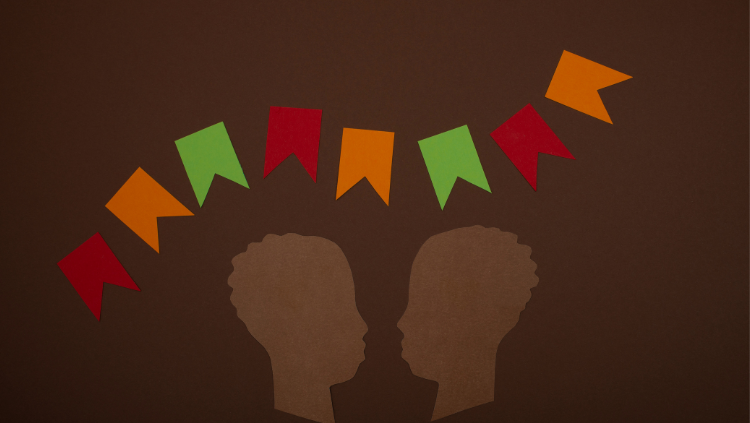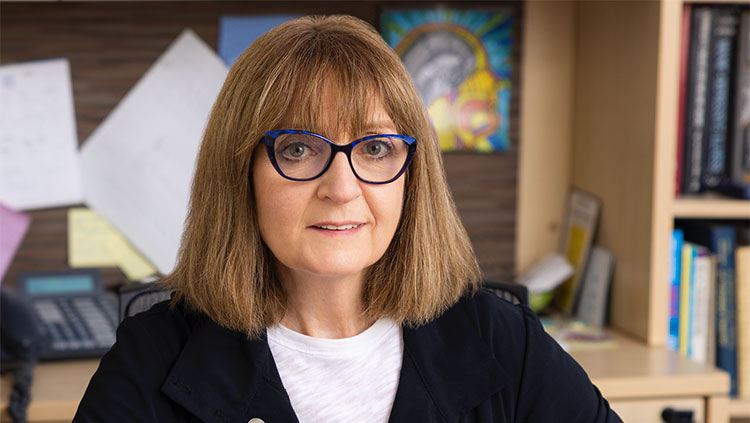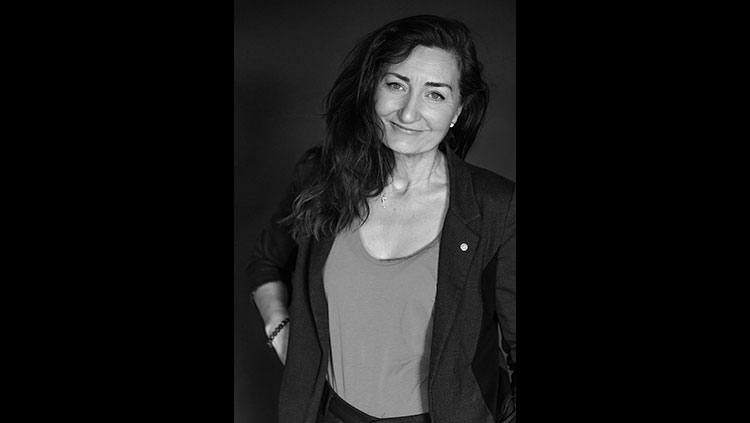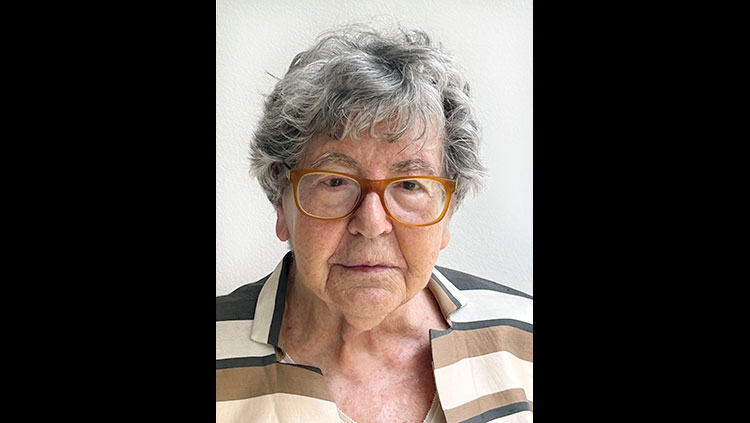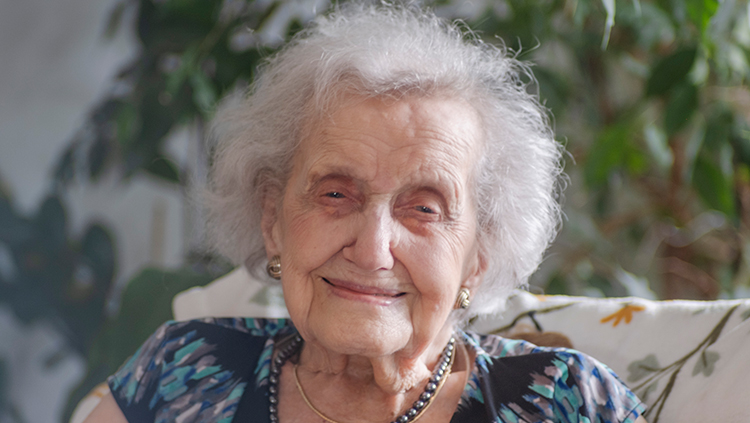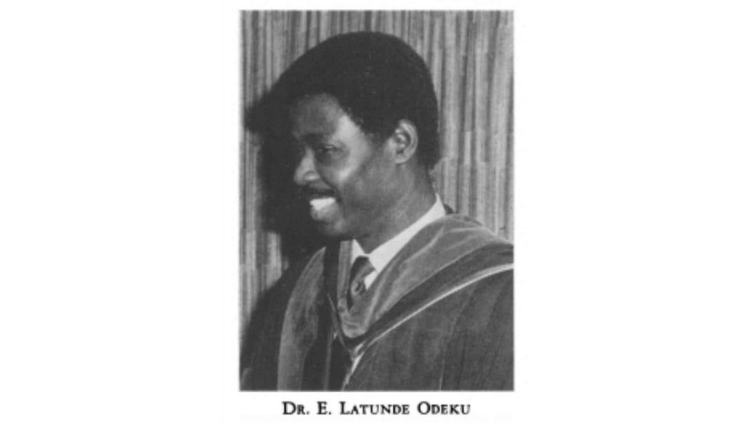Black History Is: Ernest Everett Just
- Published29 Feb 2024
- Author Cyrenna Cooper
- Source BrainFacts/SfN
American biologist and professor Ernest Everett Just was a pioneer in cellular development and fertilization.
Brain Bytes showcase essential facts about neuroscience.
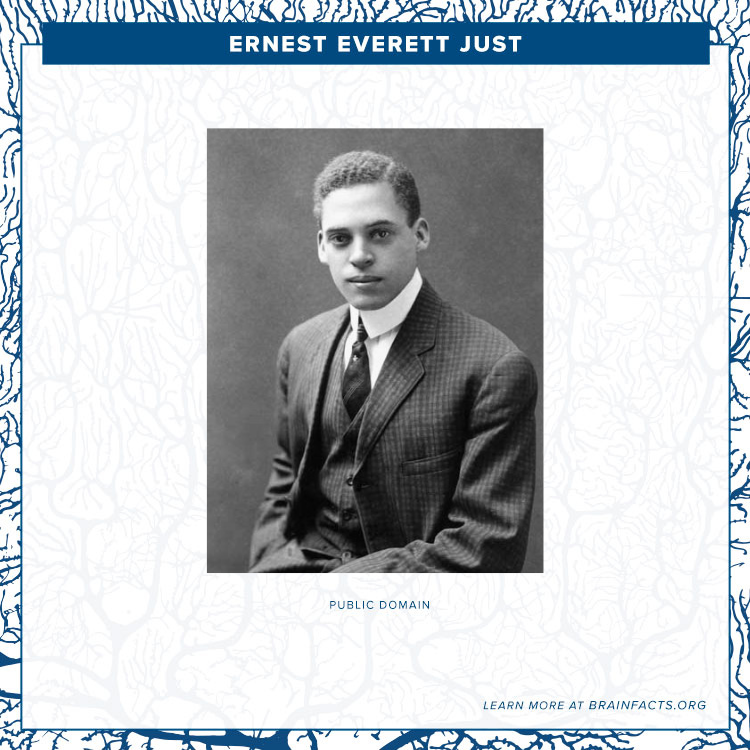
American biologist and professor Ernest Everett Just pioneered many areas of biology and physiology, namely fertilization and embryonic development. Having received degrees in biology and history from Dartmouth College in 1907, he was the only magna cum laude recipient in his class, receiving special honors in zoology and history and honors in botany and sociology.
In 1910, he joined Howard University as an English instructor and two years later was promoted to professor of biology and professor of physiology. During these years teaching at Howard, he enrolled in absentia in a doctoral program at the University of Chicago under Frank Lillie, the university’s head of zoology and director of the Marine Biological Laboratory at Woods Hole, MA. Throughout his doctoral studies, Just helped investigate fertilization and breeding habits of marine worms and sea urchins, discovering that the process of fertilization is guided by a biological system with substances secreted by the egg, rather than by a “life molecule” carried by sperm. A year after completing his doctorate in 1916, he focused on marine animal egg cell development and began his pioneering work on fertilization — emphasizing the cooperative nature between the nucleus, cytoplasm, and external environment on embryonic development.
Just’s work impacted many scientific areas of exploration, including fertilization, experimental parthenogenesis, hydration, cell division, dehydration in living cells, and ultraviolet carcinogenic radiation effects on cells. He was the first person to receive the NAACP Spingarn Medal: an award honoring outstanding achievements by an African American. Just’s career led him to work throughout Europe — Italy, Germany, Austria, the U.K., and France — in between the academic calendar teaching at Howard. He continued working in the U.S. but found it difficult to obtain research funding or a secure a faculty position from institutions outside of historically Black colleges or universities. Gaining a new perspective on discrimination he faced, he moved to Europe in 1939. But with the start of World War II, Just was briefly imprisoned in a prisoner-of-war camp before being rescued by the U.S. State Department and returning to the United States in 1940. He passed away in 1941 of pancreatic cancer. Forty years after his death, he began to gain recognition for his achievements: books written about him, a U.S. Postal Service commemorative stamp, and awards, buildings, and symposia established in his honor.
Design by Adrienne Tong.
CONTENT PROVIDED BY
BrainFacts/SfN
References
E.E. Just: Scientific Pioneer, Member of the Class of 1907. (2021). The Call to Lead. Dartmouth College. https://calltolead.dartmouth.edu/stories/ee-just-scientific-pioneer-member-class-1907
Ernest E. Just. (n.d.). African American History Program. National Academy of Sciences. http://www.cpnas.org/aahp/biographies/ernest-e-just.html
Grantham, S. (1983). The Greatest Problem in American Biology. Dartmouth Alumni Magazine. Dartmouth College. https://archive.dartmouthalumnimagazine.com/issue/19831101#!&pid=24
Selaisse, W. G. I. (2007). Ernest Everett Just (1883-1941). BlackPast. https://www.blackpast.org/african-american-history/just-ernest-everett-1883-1941/
Wellner, K. (2010). Ernest Everett Just (1883-1941). Embryo Project Encyclopedia. Arizona State University. https://embryo.asu.edu/pages/ernest-everett-just-1883-1941
Also In Meet the Researcher
Trending
Popular articles on BrainFacts.org



